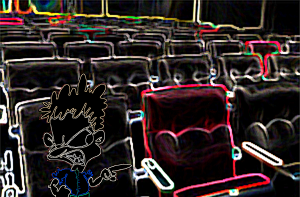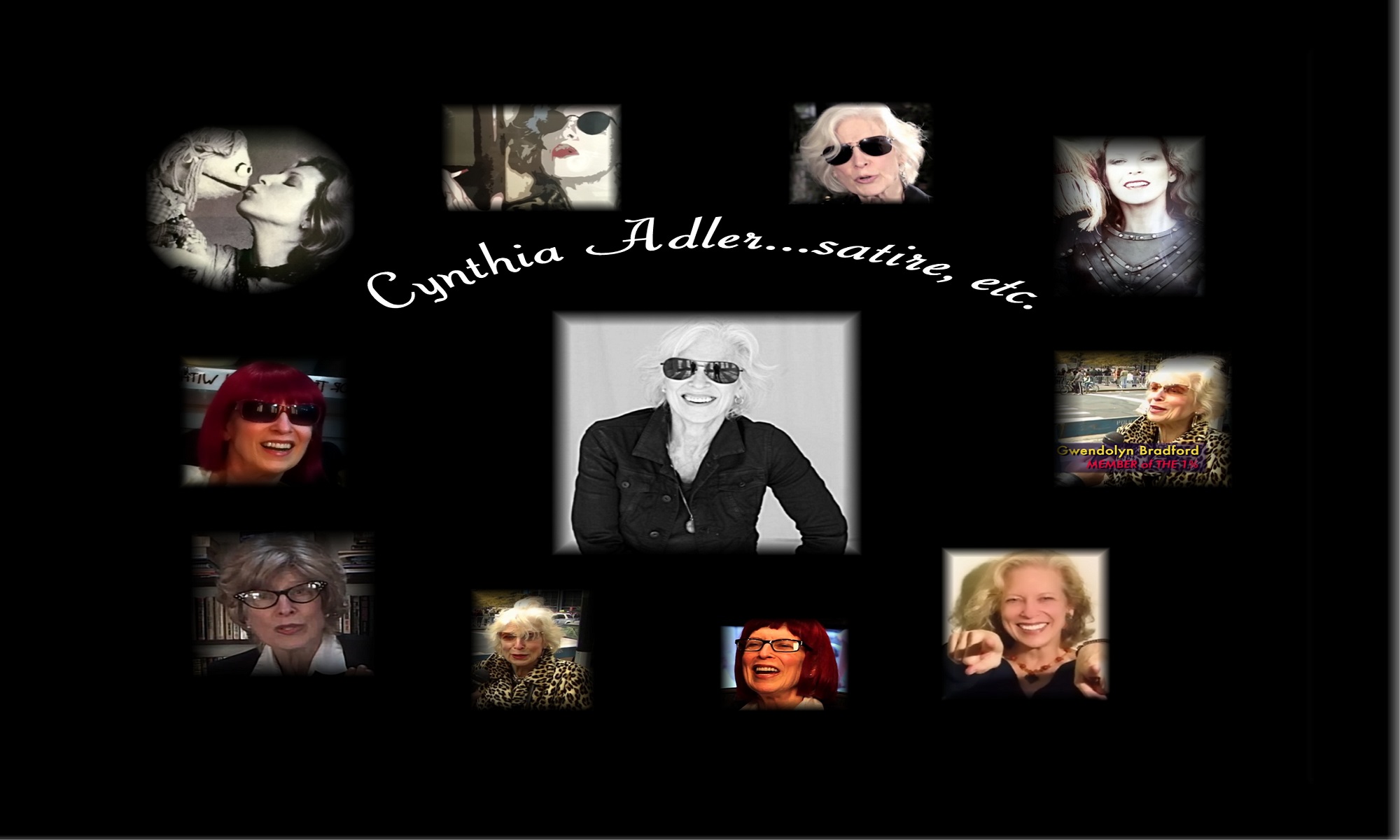The Critic
vs.
Kathy Lohbrau
Kathy Lohbrau refused to change her name. Her agent told her that it was a name that could be used in some very unflattering ways if her reviews weren’t good, but she told her agent that was her birth name, the name of her father’s family and she was sticking with it. That’s when she was eighteen, and she had just turned thirty-one.
Kathy had been acting since she was ten years old. First in school plays, and then in some little studio shows, that were being produced in her small town in Tulsa Oklahoma. She had the acting bug since very young, when her parents brought her to a production of “Into The Woods,” at a small dinner theatre in downtown Tulsa. She was mesmerized by the actors, looking like they were having so much fun on that stage, while she was picking at her small chicken pot pie, and drooling all over her birthday blouse. It didn’t matter that the show had gotten a limp review by the local paper. To Kathy, this was perfection.
When she was eight, she started taking acting workshops where they played little games, and made the kids do little songs and dances, but her real talent began to show in High School, when she took the lead in most of the school’s productions and gave credit to Mary Parsony’s acting workshop near her home, that Kathy had attended for the last four years. After a production of “You Can’t Take It With You,” re-directed and set in the present by one of her teachers, a local agent came to one of the performances and signed Kathy up immediately.
Willa Carmody was a very small time agent. But she had big aspirations, and Tulsa was just starting to explode with a host of theatre companies and many new theatres as well. Willa believed that Tulsa might become the new Broadway some day. She was a bit deluded, but her clients loved her for her belief in them and the possibilities that could exist for them, theatrically. When she met with Kathy a few days after the show, she told her that her name might be a problem. Kathy refused to even entertain the thought.
But no one counted on the publication of a new newspaper in Tulsa, and a new Critic named, Simon Gusserby. “The T Tabloid,” that Gusserby now edited and reviewed for, quickly became the most popular paper in Tulsa, and specialized in theatrical events of all kinds…movies, theatre, puppet shows, and concerts, just to name a few. But the theatre reviews that Simon did,  were the talk of Tulsa. They were long, they were graphic, and they could be brutal. Sure, there were lots of other reviewers that wrote for the other four papers in Tulsa, but no one really cared about any of them anymore after Simon Gusserby hit town. He reviewed a musical called, “What The Cats Dragged In,” written by a local composer, Stephan Schneer and lyricist, Blanka Donka. Gusserby called the play “A cat box of turds,” and called the music “atonal” and the book, “a pitiful and boring disaster.” It closed in two nights, and Blanka Donka moved to Wisconsin the next week to study marketing.
were the talk of Tulsa. They were long, they were graphic, and they could be brutal. Sure, there were lots of other reviewers that wrote for the other four papers in Tulsa, but no one really cared about any of them anymore after Simon Gusserby hit town. He reviewed a musical called, “What The Cats Dragged In,” written by a local composer, Stephan Schneer and lyricist, Blanka Donka. Gusserby called the play “A cat box of turds,” and called the music “atonal” and the book, “a pitiful and boring disaster.” It closed in two nights, and Blanka Donka moved to Wisconsin the next week to study marketing.
Simon was introduced to Kathy Lohbrau at a party given at the Masked Dome Theatre in downtown Tulsa. Her friend Ronnie Pincus was in a play that Gusserby had reviewed fairly favorably and this was a special dinner for the cast and some of the reviewer’s. A few friends of the cast were allowed to come, and Ronnie really wanted her good friend Kathy there. Somewhere between the appetizers and the salad, Gusserby came over to the table. He was introduced to Kathy, and at once started to freeze inside. She looked exactly like his sister, Greta, who he hated and planned on never talking to ever again, and who had managed to steal his entire inheritance right from under his nose.
Kathy smiled, and so did Simon. He said he was glad to meet her and that he had heard some good things about her. Then he went into the Men’s Room to swallow a tranquilizer so he could keep his equilibrium. He tried to be rational. He tried to tell himself that this woman was a different person than his sister, perhaps a nice person, but the claws inside his gut wouldn’t let go and he sunk into an undercurrent of rage…
Two weeks later, Kathy Lohbrau got cast as a glamorous witch, in a drama called, “An Unsuitable Wife.” It was a play about a young couple, who had just gotten married and had invited the bride’s sister, Plum, (a Witch,) to come spend a weekend at their country house. The mayhem that Plum perpetrated, (along with seducing her sister’s new husband,) lent a kind of vicious overtone to the play, but it was well written and had many surprises for the audience, during it’s three hour stint.
Gusserby sat there opening night, unable to take in the essence of the play. He was fixated on Kathy, and irrationally wanting to strangle her. The audience gave her a standing ovation, and applauded lustily for the other two actors and the dog that shared the stage for about an hour. Gusserby got to his computer later that night. He wrote, “An Unsuitable Wife, should have been called, “An Unsuitable Witch!”. “Kathy Lohbrau’s name really suits her! Last night, Kathy Lohbrau took a dump on what could have been a wonderful evening in the theatre. Mark Elliot and Marissa Goober were delightful as a couple who had just been married and were playful and funny in their roles, in a dark play that should have chilled you to the bone. But Kathy Lohbrau made sure her infantile shenanigans, and sophomoric readings would surely keep you from even knowing what this play was about. Perhaps she should have been cast as the dog. It might have suited her better.”
The other reviewer’s in all the other papers gave, “An Unsuitable Marriage,” fabulous reviews, calling Kathy, “a shooting star” and, “just brilliant and magical.”
But it didn’t matter. No one cared about those reviews anymore.
Kathy’s mother was the first to see the review, and she cried for about an hour. Her father plotted to kill Simon Gusserby, but knew he would never be able to go through with it, and her director scratched his head till some of his hair fell out, not able to take in this bitter and completely bogus  review. Many people cancelled their tickets, and the show lasted only three weeks of what should have been a three-month run.
review. Many people cancelled their tickets, and the show lasted only three weeks of what should have been a three-month run.
Kathy Lohbrau was devastated. She couldn’t figure out what had happened. She knew she had given a wonderful performance opening night and that the audience loved her. She even wrote Simon Gusserby a letter, asking him why he felt that way about her performance, but all he could do was answer, “My responsibility is to my readers, I write em’ as I see em’. ”
Kathy was starting to mistrust her instincts. Her old acting coach, Mary Parsony, told her that she gave a great performance opening night, and that maybe Mr. Gusserby had just eaten something bad before he came to the theatre.
The months to follow were no different. Kathy was seen in a production of “The Donkey Trails,” a play about a zookeeper and his daughter, who had raised a donkey in their house, since the donkey was a baby. It was a lovely farce, with twelve actors playing different stages of the father, daughter, and donkey’s lives. Kathy had many monologues and she interacted with the donkey gently and beautifully. Gusserby called her, “an asses ass,” and said she looked a little too much like the donkey. Had her mother been fooling around with an animal before she was born?
People laughed when they saw her. Many other ugly reviews were to follow. “Talking Trash,” about a garbage pickup man, “Fred’s Lonely Bone,” a sexual farce, and “Blossom and Doolie At The Table,” where Gusserby called her “Droolie,” and said that her southern accent was completely unintelligible, and perhaps she was a little too old for the role. Bit by bit, Kathy was getting smaller and smaller parts, and was becoming more and more depressed.
Willa Carmody had long ago moved on. She was now a big agent in New York, and had wanted to bring Kathy to the Great White Way, as well, but Kathy wanted to stay in Tulsa with her three cats and her insurance salesman boyfriend, Jeff, who had still not asked her to marry him. Jeff would send threatening letters to Gusserby every time there was another review, but never received an answer. And Kathy wanted to move on with her life. She was thirty-four now, and it was time for a change. She contacted Willa and told her she would be coming to New York to work with her in two months. She had just started rehearsals for another show, “Mr. Blonde Checks Me Out.” It was about a surfer guy who had bedded every woman on this vacation island, and was soon to be murdered. Kathy played his massage therapist, who would tell him when a new woman guest came on the island, and just where she was staying. It was a rather small part, but Kathy put her own stamp on it, and she was great. Opening night was going to be a big thing. The Mayor of Tulsa was coming, the Police Chief, and The staff of “T” magazine. A seat for Simon Gusserby was picked out, eight rows from the stage on the side. Just as he liked it.
But Kathy had other plans for Mr. Gusserby. She asked the director if he could keep the theater rather dark when the audience walked in, because this was such a dark play, and that would set the mood from the beginning. The director agreed, and the lights would be held at one-third from the moment the theatre opened.
When opening night came, Kathy arrived at the theater two hours before show time, with a supply of epoxy glue, and right before they called places, Kathy ran into the audience and slathered Mr. Gusserby’s seat with all the epoxy glue she had. She wore a rubber glove so she could pat it down quickly and then run backstage just in time for “places please”, as stage manager’s are so fond of saying. And she did not work alone. Much of the cast was in on this with her, especially Michael Slovane, the hunky and talented lead actor, who was a great fan of Kathy’s work and hated Gusserby for decimating his close friend, Stephan Schneer, who had never been able to write a note, since. And since there was no intermission in this ninety-minute play, there wasn’t a lot to think about.
 The audience took their seats, and were riveted for that entire hour and a half. Gusserby sat there thinking about what kind of vicious review he could give Kathy. He badly needed to go to the bathroom, but knew he couldn’t get up during the play to do that. At the end of the play, the audience was on it’s feet clapping for the longest time. Simon Gusserby was bored. He sat until the curtain came down and then started to get up to make a beeline for the Men’s Room. But he couldn’t move. He couldn’t even lift himself off the chair. He called for an usher. Two young men, (understudies) came over to Simon. “We can’t get you out, sir,” said one. “I think we have to cut you out. You seem to be glued to the seat!” Simon was apoplectic and starting to drip a little. One of the boys, couldn’t contain himself and started to laugh. What was left of the crowd, wasn’t moving. They were fixated on Simon. The theatre manager arrived with a big scissor. Simon tried to get him to stop, but he started to cut around Simon’s pants until he had made a hole big enough for Simon to stand up, exposing his buttocks completely. Many phones were taking videos by this time, and Simon couldn’t hold on any more. As he ran to the Men’s Room with his butt exposed, he left a yellow trail of urine.
The audience took their seats, and were riveted for that entire hour and a half. Gusserby sat there thinking about what kind of vicious review he could give Kathy. He badly needed to go to the bathroom, but knew he couldn’t get up during the play to do that. At the end of the play, the audience was on it’s feet clapping for the longest time. Simon Gusserby was bored. He sat until the curtain came down and then started to get up to make a beeline for the Men’s Room. But he couldn’t move. He couldn’t even lift himself off the chair. He called for an usher. Two young men, (understudies) came over to Simon. “We can’t get you out, sir,” said one. “I think we have to cut you out. You seem to be glued to the seat!” Simon was apoplectic and starting to drip a little. One of the boys, couldn’t contain himself and started to laugh. What was left of the crowd, wasn’t moving. They were fixated on Simon. The theatre manager arrived with a big scissor. Simon tried to get him to stop, but he started to cut around Simon’s pants until he had made a hole big enough for Simon to stand up, exposing his buttocks completely. Many phones were taking videos by this time, and Simon couldn’t hold on any more. As he ran to the Men’s Room with his butt exposed, he left a yellow trail of urine.
The video went viral the next day.
Kathy and Jeff moved on to New York and got married, and Kathy became a favorite on the Broadway Stage for the next thirty years.
Simon quit his job at the paper, the day after the play opened and moved to Istanbul. His replacement, Bob Flotterman wrote a brilliant review of the show, and cited Kathy, as one of the best actresses Tulsa had ever seen.
Cynthia Adler
“Mary Lou Logginberry Spaces Out…and Other Crazy Stories” (Stories for Women…) book excerpt.
